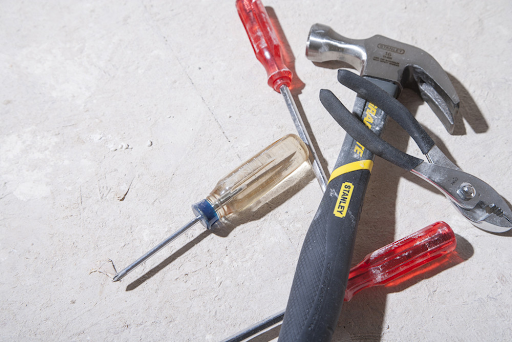
Anyone who owns a home or rents one will find a good home toolkit to be essential for their family. Whether you’re putting furniture together, installing a new faucet, or doing small-scale electrical jobs, having the right tools will save you time and money. But what should be included in your home toolkit? From basic hand tools to specialized mechanics tools — here’s the list of must-haves for every household.
Essential Hand Tools
A claw hammer is one of the most useful tools for driving nails into various materials and also for removing nails when needed. A Phillips head screwdriver set (including flatheads) should be included as well. From furniture to appliances, different sizes of screws are used for many household items, so a variety of sizes is essential. A ratcheting screwdriver with interchangeable bits can also save some room.
An adjustable wrench is an absolute must. This can be used to tighten and loosen nuts and bolts without a complete wrench set. This is particularly useful for plumbing work and putting together furniture. Pliers are helpful for a lot of household jobs too. Needle-nose pliers assist in small, delicate jobs like bending wires, while slip-joint pliers give you some extra grip for turning more stubborn bolts or just holding things in place. Locking pliers, known as Vise-Grips, can grip material and hold it in place for hands-free work.
Your home toolkit is not complete without a retractable tape measure to get accurate dimensions of various spaces, furniture, and materials. A utility knife is also a must-have; it’s great for opening boxes and cutting carpet or trimming material such as drywall and plastic sheeting. Make sure things are lined up by using a spirit level for all your appliances at home, as well as hanging pictures, installing shelves, or placing furniture.
Specialized Mechanics Tools
Although most people think of mechanics tools in connection with auto repair, they’re extremely useful in a home toolkit. Socket set: These are primely used for loosening or tightening nuts and bolts. A standard set should have a ratchet handle, various socket sizes, and both standard (SAE) and metric measurements. Hex, or Allen wrenches, are often needed for furniture assembly. A full set guarantees that you will have the size you need when you need it.
Torque wrenches come in handy for any jobs that need a precise amount of pressure applied to them, like putting in appliances or tightening up bolts on furniture. Because some home improvement projects can be tough on your hands, it’s good to have a reliable pair of work gloves to guard against cuts, splinters, and abrasions, particularly when using mechanical tools or working with coarse materials.
Electric Power Tools
Power tools provide another layer of convenience on top of basic hand tools that can make home repairs and do-it-yourself projects a lot easier. A cord-free drill is one of the most useful tools you can own — with the right attachment, it’s easy (if not super fun) to drill holes and drive screws and even mix paint. A jigsaw is also handy, as it cuts through wood, plastic, and even metal, making it perfect for shelving and flooring projects.
If you often put together or take furniture apart, a power screwdriver can help you do it faster. Though not a replacement for a standard set of screwdrivers, it is a huge time-saver for repetitive activities. Keep one on hand for those jobs that would be too time-consuming to use a standard screwdriver to complete.
The best way to build your home toolkit is to start with the basics and then expand your collection gradually. Prioritize your toolset by the most common home repairs, and consider adding high-quality items over time, like specialized mechanics tools and electric power tools.
By building a well-rounded toolkit, you’ll be ready for most home maintenance, DIY projects, and surprise repairs you might face. The best tools can make your job much easier while keeping your home functioning and looking great.


























